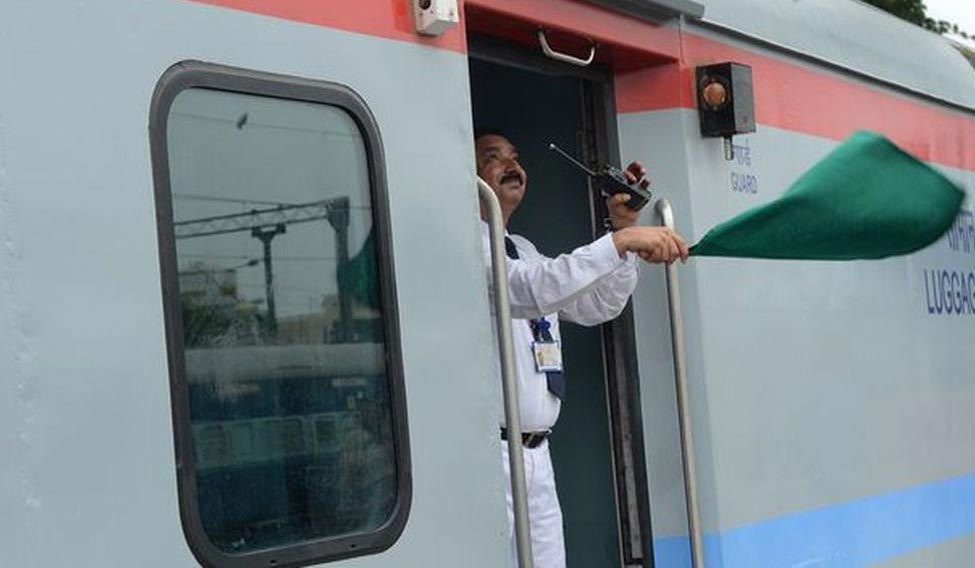Right from the British era, it has been an event that everybody looked forward to. Passengers weary of travelling in overcrowded and delayed trains scanned the railway budget for a new benefit or facility. Parliament members who lobbied for new trains or stops agitated when they did not find what they had demanded. As the treasury benches thumped the budget schemes as “popular”, states that did not get a fair deal protested. All this would end if a recommendation by the NITI Aayog—that the rail budget be done away with— is accepted by the Narendra Modi government.
Railway ministry takes a U-turn
It is a reversal of stand previously taken by the rail ministry. When in the past, the finance ministry suggested that the railway budget be incorporated within the Union Budget, the rail ministry opposed it tooth and nail. Then why does Railway Minister Suresh Prabhu now want to put an end the 92-year-old practice of presenting a rail budget? “I am looking at national interest,” he said in the Rajya Sabha.
More than a month ago, Prabhu sent a letter to Finance Minister Arun Jaitely seeking the merger of the railway budget with the Union Budget. The rail budget—Rs1.21 lakh crore—is just a small percentage of India's overall Union Budget. This year, the Railways has to set aside Rs30,000—Rs40,000 crore on account of salary hike, recommended by the 7th Pay Commission. The subsidy burden has increased to Rs34,000 crore. Moreover, there are yearly dividends to be paid to the Centre for its investment in the Railways. Adding to all these woes, the Railways will require a planned capex of Rs8.5 lakh crore for the next five years. In this situation, which railway minister would want to present a budget?
In the past, railway ministers saw the rail budget as means to secure a bright political future, for themselves and the party. Railway zones, rail lines and new trains were freely granted, sacrificing the commercial interests of the organisation. Ministers, Parliament members and political leaders lobbied for new trains and stops, least bothering about the priorities of the nation. Thanks to political bargaining, huge investments were made in uneconomical projects. Now, the railway ministry badly needs at least Rs4,83,600 crore to complete more than 450 unfinished projects it has launched. Suresh Prabhu says the Railways cannot go on like this. He wants to the defer dividend payment to the Centre for at least five years.
The Railways is in such a bad position that it cannot find money even for salary or pensions. Half the money earned by the Railways is spent on salary and pension. A proposed easy solution is to hand over the reins to the finance ministry for funding from the Union Budget. “If the finance ministry can clean up the finance of the railways”, the rail ministry can focus on modernisation and strengthening of the Railways.
In 2014, the Prime Minister’s Office asked the newly formed NITI Aayog to look into the issues and a report on integrating both the budgets.
Bibek Debroy of NITI Aayog submitted a report recommending that the railway budget be merged with the Union Budget. Article 112 of the Indian Constitution mandates the presention of a Union Budget, but a similar exercise is not required for the Railways. The rail ministry is spending huge amounts for preparation of its budget, which can easily be managed by the finance ministry. The present arrangement complicates the relationship between the railway ministry and the finance ministry. So the Debroy panel recommended scrapping of the rail budget.
The NITI Aayog panel finds no role for Parliament in approving new trains and rail lines. These are entirely commercial decisions to be left to the railway board. The panel recommends the formation of a railway development authority to decide on issues like sharing of subsidies and suggests a regulatory authority to fix fares and freight charges.
Annual reports, outcome reports and vision documents will serve the purpose of the issues dealt in the present railway budget, notes the Panel.
Arguments against scrapping
Those who oppose subsuming the rail budget say that it would give rise to new problems. The commercial interests of the Railways will be lost and it would be run like any other government department. A similar crisis arose during the British Raj, which led to the separation of the rail budget. The first separate Railway budget was presented for 1925-26, after William Ackwood, in 1924, submitted a report. The report had emphasised the importance of a separate railway budget for the development of rail infrastructure. Of the total 66,000 kilometers of the rail line in India, more than 80 per cent were built during the British rule. The huge investments were made possible after the British Raj decided to separate the rail budget from the general budget.
They say current problems can be solved through modernisation. Entrusting the railway planning to the finance ministry is suicidal. It is like reversing the ongoing process of privatisation, and bringing back nationalisation.
The finance minister faces same limitations as the railway minister, if not worse. And without focussed attention from the finance ministry, the Railways can lose its importance. The budgetary support has always been limited.
But if everything goes as per the recommendations of the Debroy panel, there will be no separate railway budget in March 2017.





